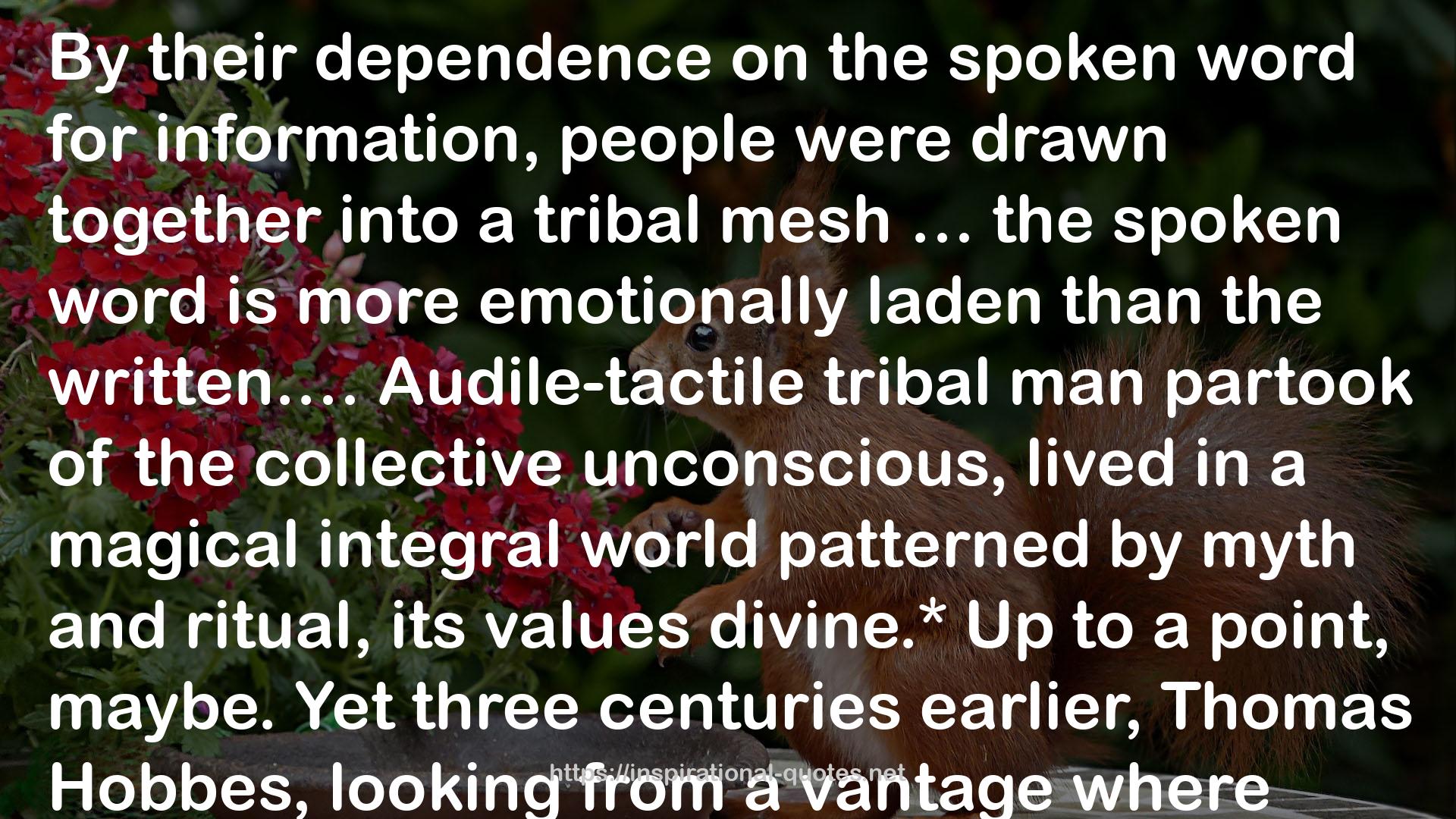" By their dependence on the spoken word for information, people were drawn together into a tribal mesh … the spoken word is more emotionally laden than the written.… Audile-tactile tribal man partook of the collective unconscious, lived in a magical integral world patterned by myth and ritual, its values divine.* Up to a point, maybe. Yet three centuries earlier, Thomas Hobbes, looking from a vantage where literacy was new, had taken a less rosy view. He could see the preliterate culture more clearly: “Men lived upon gross experience,” he wrote. “There was no method; that is to say, no sowing nor planting of knowledge by itself, apart from the weeds and common plants of error and conjecture.” A sorry place, neither magical nor divine. Was McLuhan right, or was Hobbes? If we are ambivalent, the ambivalence began with Plato. He witnessed writing’s rising dominion; he asserted its force and feared its lifelessness. The writer-philosopher embodied a paradox. The same paradox was destined to reappear in different guises, each technology of information bringing its own powers and its own fears. "
― James Gleick , The Information: A History, a Theory, a Flood
